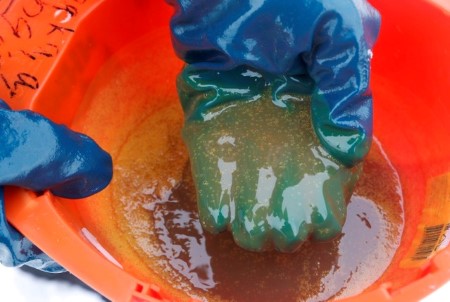




Philippines Trade Update: Imports weaken on tepid demand
 DOWNLOAD
DOWNLOAD

Policy Rate Updates: BSP outlook — cloudy with a chance of rate cut
 DOWNLOAD
DOWNLOAD

January Economic Update: Growth slows, prices rise
 DOWNLOAD
DOWNLOAD


Oil rises 1% on supply concerns, expectations for fuel switching

NEW YORK, Sept 14 (Reuters) – Oil edged up 1% on Wednesday as an international energy watchdog expects an increase in gas-to-oil switching due to high prices this winter, even though the outlook for demand remains gloomy.
Brent crude futures settled up 93 cents, or 1%, at USD 94.10 a barrel, while US West Texas Intermediate crude ended USD 1.17, or 1.3%, higher at USD 88.48.
The International Energy Agency (IEA) expects the deepening economic slowdown and a faltering Chinese economy to cause global oil demand to grind to a halt in the fourth quarter of the year. That has kept prices under pressured of late, and may inhibit further rallies.
“I think we’re going to stay in a range,” said Eli Tesfaye, senior market strategist at RJO Futures in Chicago. “I don’t think USD 70 per barrel is in the cards, but anything over USD 100 is not justified.”
The IEA also said it expects widespread switching from gas to oil for heating purposes, saying it will average 700,000 barrels per day (bpd) in October 2022 to March 2023 – double the level of a year ago. That, along with overall expectations for weak supply growth, helped boost the market.
Global observed inventories fell by 25.6 million barrels in July, the IEA said.
In the United States, however, crude inventories rose last week for a second week in a row, once again boosted by the ongoing releases from the Strategic Petroleum Reserve (SPR), latest government data showed. Commercial stocks rose by 2.4 million barrels as 8.4 million barrels were released from the SPR, part of a program scheduled to end next month.
“The crude number suggests that once we wind down the clock on the Strategic Petroleum Reserve release, we’re going to see substantial drawdowns in inventories so that’s keeping oil high,” said Phil Flynn, an analyst at Price Futures Group in Chicago.
Traders also said the lack of certainty around a possible US rail stoppage due to an ongoing labor dispute is adding a bit of support to the market. Three unions are negotiating for a new contract that could affect rail shipments, which are important for crude and product deliveries.
The Organization of the Petroleum Exporting Countries (OPEC) on Tuesday said global oil demand in 2022 and 2023 will come in stronger than expected, citing signs that major economies are faring better than expected despite challenges such as surging inflation.
(Reporting by David Gaffen; Additional reporting by Stephanie Kelly and Rowena Edwards; Editing by Marguerita Choy and David Gregorio)
This article originally appeared on reuters.com





 By Reuters
By Reuters